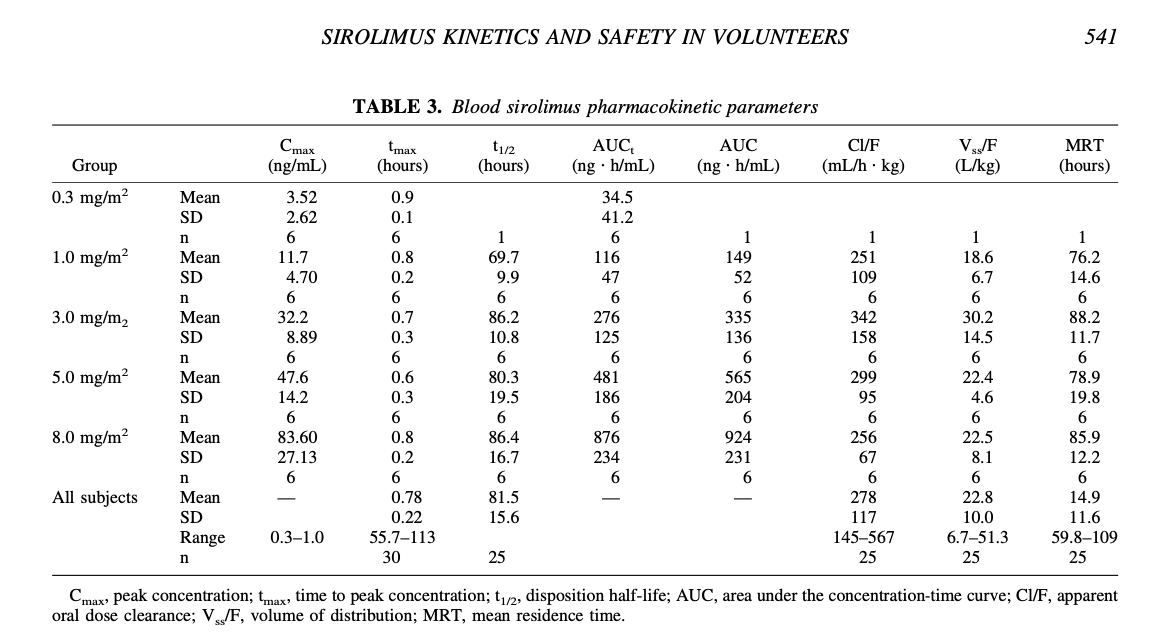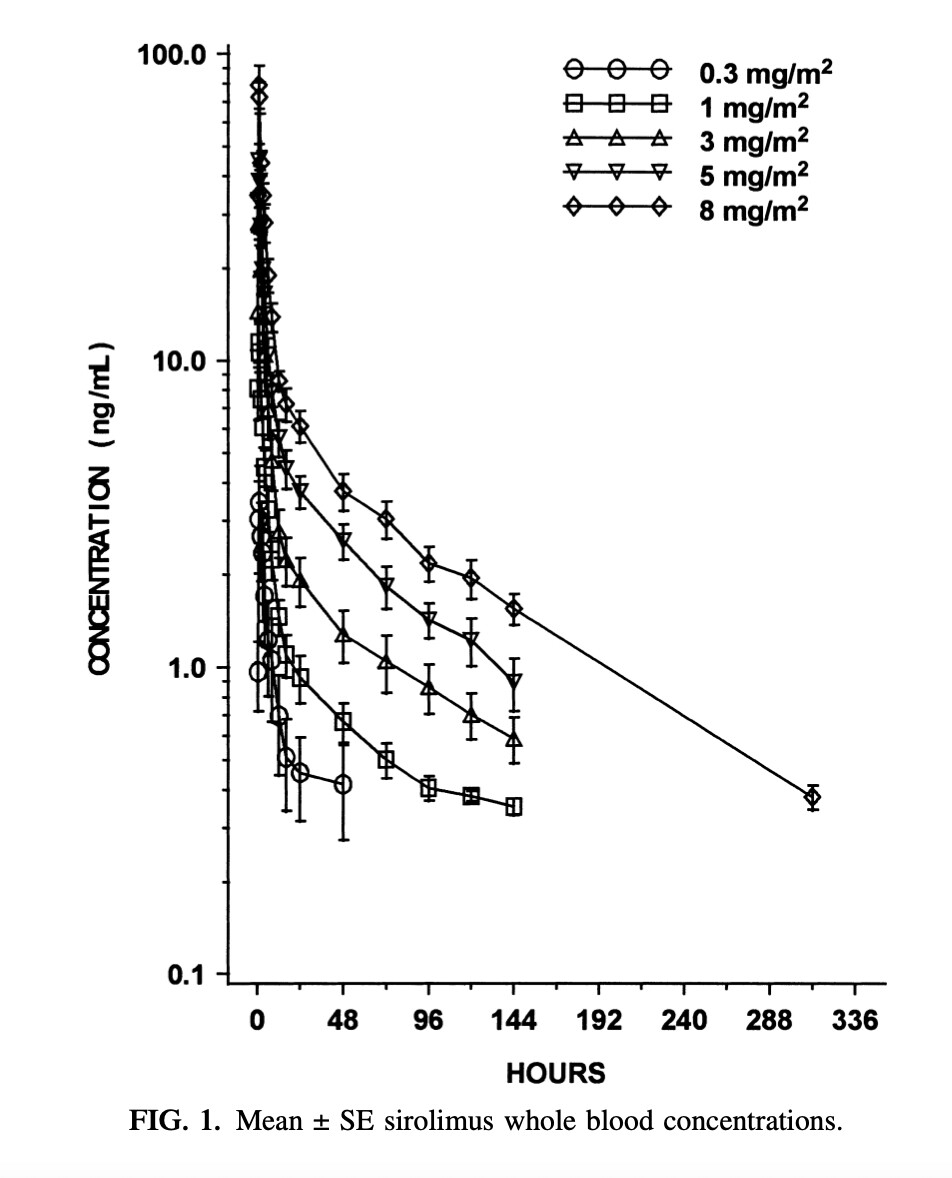
The Science Behind Rapamycin
Understand the science behind Rapamycin and how it can benefit your anti-aging regimen. Learn why monitoring your blood levels is crucial for optimal results.
Rapamycin, also known as Sirolimus, is a powerful compound used to inhibit the mTOR pathway, which is associated with various anti-aging benefits. Understanding how it works and the importance of monitoring your blood levels can help you optimize its use for better health outcomes.
What is Rapamycin?
Rapamycin is a drug that has been shown to extend lifespan in several organisms by inhibiting the mechanistic target of rapamycin (mTOR) pathway. The mTOR pathway plays a crucial role in regulating cell growth, proliferation, and survival. By inhibiting this pathway, Rapamycin can help slow down the aging process and improve healthspan.
Benefits of Rapamycin
- Promotes longevity by inhibiting the mTOR pathway.
- Improves immune function and reduces inflammation.
- Enhances autophagy, the body's way of cleaning out damaged cells.
- Reduces the risk of age-related diseases such as cancer and neurodegenerative disorders.
Why Monitor Your Rapamycin Levels?
Monitoring your Rapamycin levels is essential to ensure that you are getting the optimal dosage for maximum benefits while minimizing potential side effects. Personalized dosage based on your peak plasma levels can help you achieve the best results from your Rapamycin regimen.
A phase I study conducted to determine the pharmacokinetics, safety, and tolerability of sirolimus in 45 healthy men found that the absorption of Rapamycin occurs within 1 hour in all volunteers, and whole blood peak concentration and area under the concentration-time curve increase proportionally with the dose. The study emphasizes the importance of personalized dosage, as the pharmacokinetic parameters such as peak concentration (Cmax) and area under the curve (AUC) can vary significantly between individuals.


Source: PubMed
How RapaTrack Ensures Accuracy
Our testing process involves rigorous comparison analysis, including drawing blood samples through both fingerprick and venous methods for accurate comparison. We work with a certified lab to ensure the highest level of accuracy and reliability in your test results.
Optimal Rapamycin Dose for Longevity and Anti-Aging
By Dr. Kris Verburgh | Aging, Anti-Aging, Longevity, Rapamycin
More and more people are taking rapamycin for longevity. However, there are still lots of misconceptions surrounding rapamycin. Some people think it’s a drug that can have significant side effects.
First, there are reports that rapamycin can cause insulin resistance. However, this mainly seems to be the case when rapamycin is taken in high doses and for a long time due to indirect sequestration of mTOR components that also belong to the mTOR2 complex. Furthermore, the “high glucose” levels induced by rapamycin can also be due to “pseudo” diabetes, caused by the fasting-mimicking effect of rapamycin.
Another often-heard worry is that rapamycin is an immunosuppressant, used to prevent rejection of kidneys. Therefore, some people fear that rapamycin suppresses the immune system too much. However, to prevent immune rejection, rapamycin is given in high, continuous (daily) doses, and together with other, far stronger (and unhealthy) immunosuppressants, such as cyclosporine and corticosteroids.
Kidney transplant patients are given a high loading dose of rapamycin of around 15 mg, and then receive a daily maintenance dose of 5 mg. Sometimes lower doses are given, such as a 6 mg loading dose followed by 2 mg of rapamycin per day.
When only rapamycin is taken (so no other, much stronger immunosuppressive drugs), various studies demonstrate that rapamycin can actually improve immune function. For example, rapamycin could reduce the risk of dying from infectious diseases.
Also, contrary to kidney transplant patients, who receive rapamycin daily, various longevity physicians recommend taking rapamycin only once-weekly or two-weekly. So which rapamycin doses are taken for longevity? Mostly, 2 mg to 10 mg of rapamycin is taken, every week or every two weeks. Professor Michael Blagosklonny, an expert in rapamycin and longevity, even took a regimen of 20 mg of rapamycin every two weeks.
Generally, the most often recommended rapamycin dose is between 2 and 8 mg once weekly or every two weeks. Mostly, people take 5 to 7 mg weekly. Some experts recommend taking “rapamycin holidays”. For example, one takes rapamycin (bi)weekly for 3 months and then takes a break of one month, during which one does not take any rapamycin, and then starts again a 3-month period. Other people take rapamycin for 3 months, and then take a 3-month break.
As you can see, such dose regimens are considerably lower and different than when taken in an organ-transplant context, in which rapamycin is taken daily, sometimes 5 mg or more per day, and in combination with other very strong immunosuppressants.
However, there have been longevity or health-focused studies in humans in which rapamycin is given continuously, demonstrating no serious side effects. In one study, a relatively low dose of 1 mg of rapamycin every day in elderly people (to improve immune function) didn’t lead to significant side effects and was shown to be safe.
In general, rapamycin has demonstrated to be a reasonably safe drug. Multiple clinical trials show that serious side effects are very low or non-existent. Some studies even show that side effects are higher in the placebo group than in the rapamycin treated group. In a failed suicide attempt one person took 103 tablets of 1 mg or rapamycin (so 103 mg in one go), with no significant side effects (only elevated cholesterol).
However, when starting rapamycin treatment it’s important to keep some things in mind, such as closely following specific blood biomarkers.
Source: krisverburgh.com
References
- Rapamycin-induced insulin resistance is mediated by mTORC2 loss and uncoupled from longevity
- A randomized control trial to establish the feasibility and safety of rapamycin treatment in an older human cohort: Immunological, physical performance, and cognitive effects
- Pharmacokinetics and safety of single oral doses of sirolimus (rapamycin) in healthy male volunteers
- Acute Sirolimus Overdose: A Multicenter Case Series